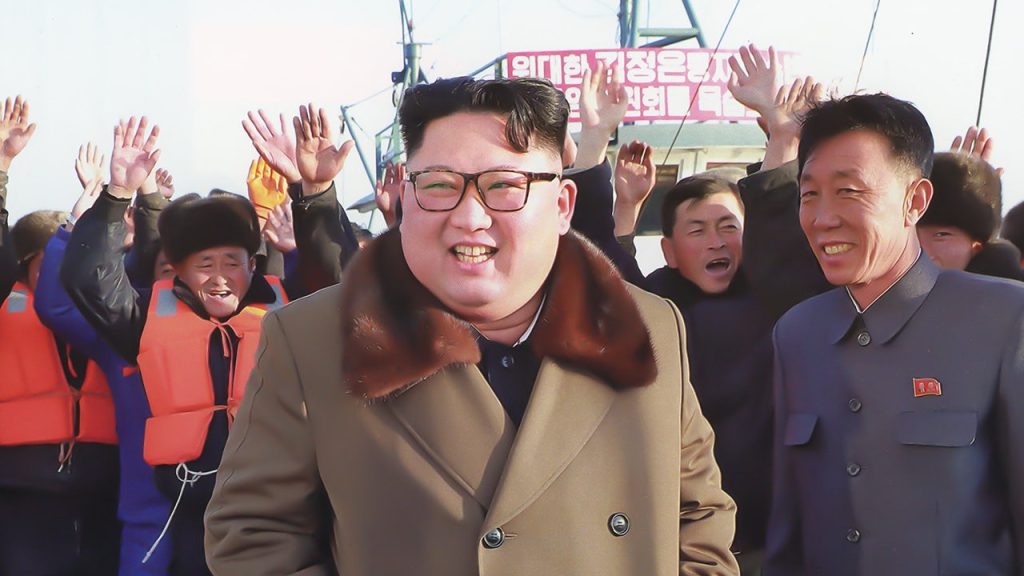A song praising North Korean dictator Kim Jong Un has gone viral on TikTok, with people joking about its dystopian catchiness. In North Korea, South Korean pop and Western music are banned, and some defectors have cited illegally listening to outside music as a factor in their decision to defect. North Korean music is said to lack emotions, while American and South Korean music is described as relatable and chilling. The song “Friendly Father” has been praised for its catchy and upbeat melodies, with experts noting its similarities to Abba and the government’s intention to create an “earworm” song with simple lyrics.
North Korean authorities are known to create propaganda songs that serve to educate citizens on why they should feel gratitude and loyalty to the ruling party. The government plays these propaganda songs every morning throughout the country, teaches citizens choreographed dances to the music, and prints the lyrics in newspapers. This form of indoctrination aims to embed the message of loyalty and gratitude into the minds of the citizens. The catchy and rich orchestral-sounding sequences in “Friendly Father” exemplify the government’s intention to create songs that stick with people and serve the regime’s propaganda purposes.
Defectors have shared their experiences of the impact of outside music on their decision to defect from North Korea. They have described the lack of emotions in North Korean music compared to the relatability and freshness of American and South Korean music. The lyrics in outside music have the power to evoke chills and change facial expressions, showing the influence of music in shaping thoughts and emotions. The stark contrast between the emotional responses to different types of music highlights the impact of cultural influences on individuals living under a repressive regime.
Experts have analyzed the musical qualities of “Friendly Father,” noting its catchy melodies and rich orchestral arrangements reminiscent of Abba. The song’s simplicity in lyrics and ease of singing suggest a deliberate effort by North Korean authorities to create an “earworm” song that embeds the message of loyalty and gratitude to Kim Jong Un. The use of propaganda songs as a form of ideological indoctrination is a common practice in North Korea, with songs, dances, and printed lyrics serving as tools to reinforce regime propaganda and control the thoughts and emotions of citizens. The government’s control over artistic output plays a crucial role in shaping the attitudes of the population toward the ruling party.
The impact of music on individuals and communities in North Korea is evident in the experiences shared by defectors and experts. The emotional responses to outside music compared to North Korean music highlight the power of music in shaping attitudes and emotions. The government’s use of propaganda songs as a tool for indoctrination and loyalty building underscores the regime’s control over artistic expression and cultural influences. The catchy and upbeat melodies of “Friendly Father” exemplify the government’s strategy to create songs that embed messages of loyalty and gratitude to Kim Jong Un in the minds of its citizens. The role of music in shaping cultural identities and influencing societal attitudes is a key aspect of life under a repressive regime like North Korea.


